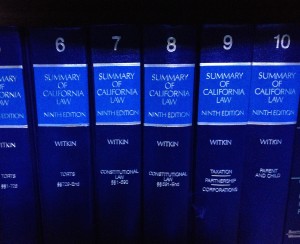When is an Attorney Immune from Malpractice Liability?
ATTORNEYS ARE RESPONSIBLE FOR KNOWLEDGE AND USE OF GENERAL AND DISCOVERABLE LEGAL PRINCIPLES
As a general rule, an attorney must possess and use a competent, functional knowledge of the general principles of law, as well as the specific areas in which the lawyer claims special competence or specialization. Lawyers must also know (or discover) rules of law which are readily found through standard research techniques, even if those rules are not commonly known.
“JUDGMENTAL IMMUNITY” MAY APPLY IN AREAS OF UNSETTLED LAW
Sometimes, the law is unsettled or open for reasonable argument and interpretation. The rules of attorney competence do not, generally, expect lawyers to know or anticipate the way in which unsettled legal questions will be resolved. An attorney who makes an “honest error in judgment” on an unsettled or debatable point of law will not be held liable for malpractice as a result of that judgment error alone. This is called the “judgmental immunity doctrine.”
When dealing with an unsettled legal question, a lawyer does owe the client a duty to perform reasonable research and to put forth reasonable effort (measured by professional standards) to determine the applicable legal principles and enable the lawyer to make an informed decision about how the law does, or should, apply in the client’s case.
Furthermore, lawyers have a duty to inform the client of unsettled legal areas and, where the client is capable of evaluating the risks, to allow the client a reasonable opportunity to decide whether or not to proceed with a risky claim or cause of action. This relates to the lawyer’s duty to communicate with the client about the case and the client’s issues.
THE PRIMA FACIE CASE FOR JUDGMENTAL IMMUNITY
An attorney who claims he protection of the judgmental immunity doctrine must prove both prongs of a two-step test:
1. The attorney’s advice to the client was based on informed legal judgment after reasonable research into applicable legal principles.
“Reasonable research” requires more than reading a couple of cases, but is evaluated on a case-by-case basis. Research need not disclose every applicable case in order to meet this threshold, and sometimes an attorney can perform legally-sufficient research but still come to an incorrect conclusion.
2. The applicable law was unsettled at the time the advice was given.
Attorneys should research unsettled issues thoroughly, and document both the research and any subsequent discussions or communications with the client.
As always, this post is intended for informational purposes, and should not substitute for legal research or a consultation with a qualified professional. If you believe that your attorney may have committed malpractice, consult a specialist immediately to discuss the issues; your legal rights could be compromised by delay.
















